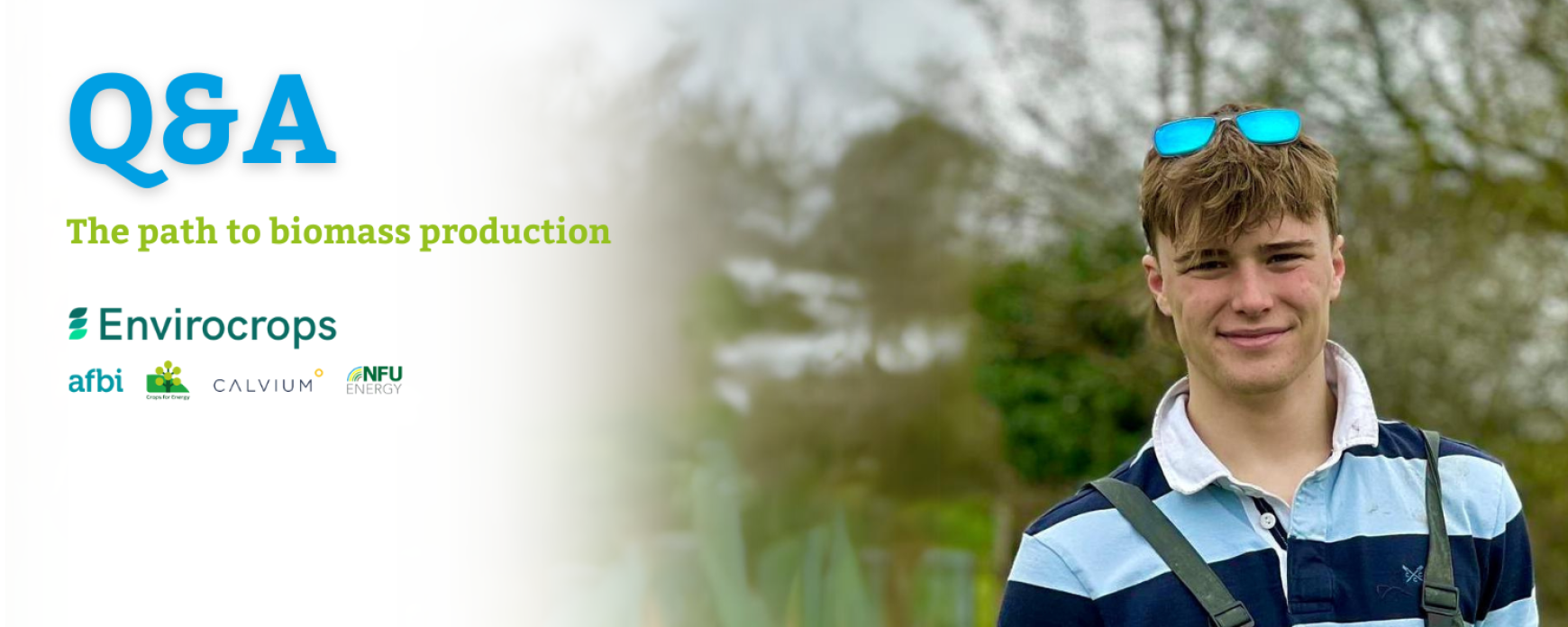Envirocrops, a three-year government funded initiative spearheaded by the Agri Food and Biosciences Institute (AFBI), Crops for Energy, NFU Energy and software developer Calvium, aims to boost sustainable domestic biomass production by funding innovative solutions that tackle barriers to feedstock production.
The NFU recently sat down with Will Rowe, Student Advisory Member on the Envirocrops project, to discuss his role in enhancing the project's development and raising awareness of sustainable practices. Here's what Will had to say about his involvement, his vision for the future of the project, and the importance of integrating environmental innovation with real-world applications.
Q: What is your background and how did you become involved with Envirocrops?
A: I have always shown an interest in farming. Not growing up on a farm means I’ve gained experience in other ways, through associates, magazines and online. I’ve been a member of Windsor and Maidenhead District Young Farmers Club for four years and serve as vice-chairman. I’m currently in my first year of a Level 3 Agricultural Diploma at the Berkshire College of Agriculture and applied for the role of student adviser to sit on the committee after first hearing about Envirocrops during a talk at the college. I have been in position for four months and thoroughly enjoy it.
Q: What are your responsibilities?
A: I participate in the Envirocrops Advisory Group’s online meetings, test the web app and the ‘Cropper’ game and provide feedback on its content. I also share information on Envirocrops with fellow students, my Young Farmers Club, and the wider agricultural community within my area. Being a younger member helps to futureproof Envirocrops for the next generation of farmers and landowners.
Q: What are some of the most promising applications or uses for biomass crops that you’ve explored during your involvement with Envirocrops?
A: I believe there are no bad applications or uses for biomass crops as all are with the intent of lowering carbon emissions, fighting the climate crisis and providing more sustainable ways to power and heat our homes and businesses. As well as this, it provides farmers and landowners with the opportunity to diversify their income, exploit marginal land and increase their biodiversity. Biomass crops are not just used to produce energy. Alternative uses include flood mitigation, increasing biodiversity, natural filters and building materials.
Q: How do you promote awareness of sustainable farming practices, particularly those related to biomass crops?
A: Young Farmers allows me to network with a wide range of people from arable, livestock, poultry and mixed farms, as well as large estates, ground management specialists and contractors. As my college has a large coppice willow plantation on a four-year rotation that feeds its two biomass boilers, I have regular meetings with the college’s estate manager in which we discuss biomass crops and the Envirocrops web app. This also gives me a greater understanding of biomass crop production in my area.
Q: What advice do you have for anyone interested in getting involved in similar sustainability projects?
A: Keep up to date on current changes in the industry, be open minded to new ideas and willing to learn wherever possible. Every day is a learning day! Also, network with farmers and landowners, discuss what they are doing to provide a more sustainable environment. We are the future of agriculture in Britain and responsible for creating a sustainable future not only for ourselves but everyone we provide food for. You never know when the next opportunity will arise so make sure you take them when you can, as well as enjoying what you do.
For more information, visit the Envirocrops website, and if you have any questions, feel free to email [email protected]. We're here to help with any inquiries and to support your journey towards sustainable farming practices.


